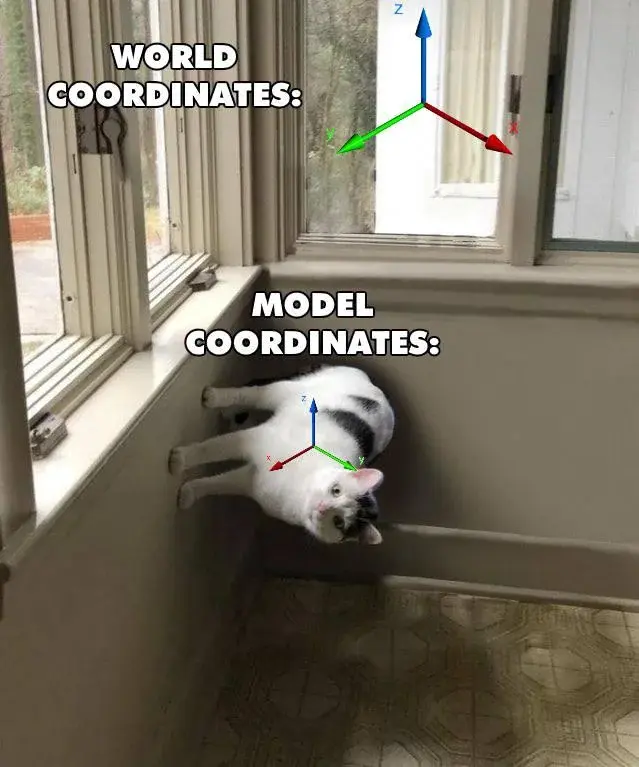this post was submitted on 06 Jul 2023
725 points (98.7% liked)
Programmer Humor
32710 readers
689 users here now
Post funny things about programming here! (Or just rant about your favourite programming language.)
Rules:
- Posts must be relevant to programming, programmers, or computer science.
- No NSFW content.
- Jokes must be in good taste. No hate speech, bigotry, etc.
founded 5 years ago
MODERATORS
you are viewing a single comment's thread
view the rest of the comments
view the rest of the comments

How does projection work in your field? X, Y, Z get converted to X, Z and 2D screen planars have no Y axis?
Who invented this, why did she do it and where to send my official letter of complaint?
I thought right-hand rule with Z up as thumb was standard in science? You usually project on the xy-plane, for example when calculating the distance to objects on a flat surface.
I only know thumb = motion/current but now since you say, it's clear: people used x/y for 2D logically but the 2D plane used to be paper. which is parallel to the earth surface (usually). Computer screens are perpendicular so Y points up, not away from you.
So this makes sense with paper, TIL. With computers, Z traditionally means depth.
TBH I'm not sure I totally understand the question but projection is very useful to decompose the orientation of elements, like a cylinder that you just measured with a machine or a scanner. The coordinates and orientation (angles) can be projected in the three main planes XY, YZ and ZX.
Sorry for being unclear, I was talking about screen projection. For actual visualization.